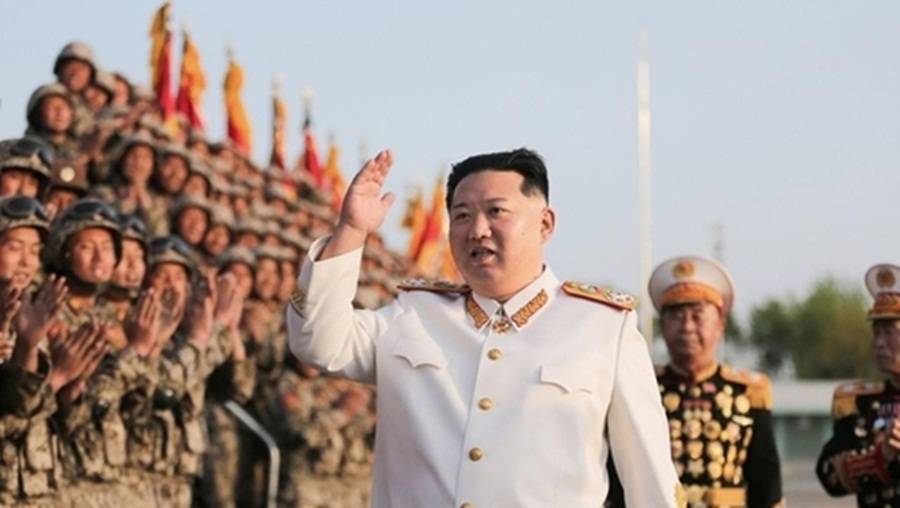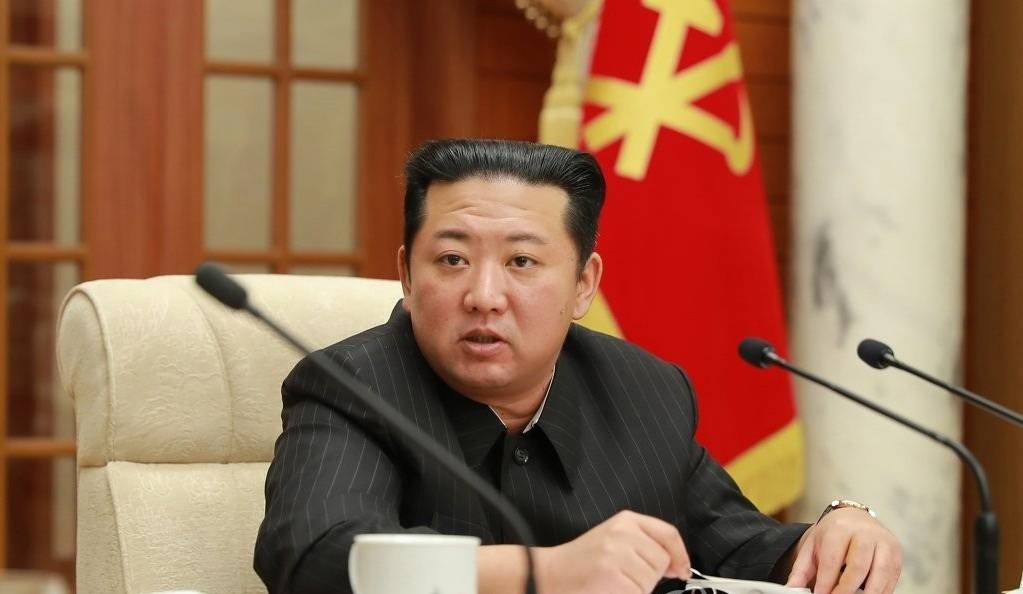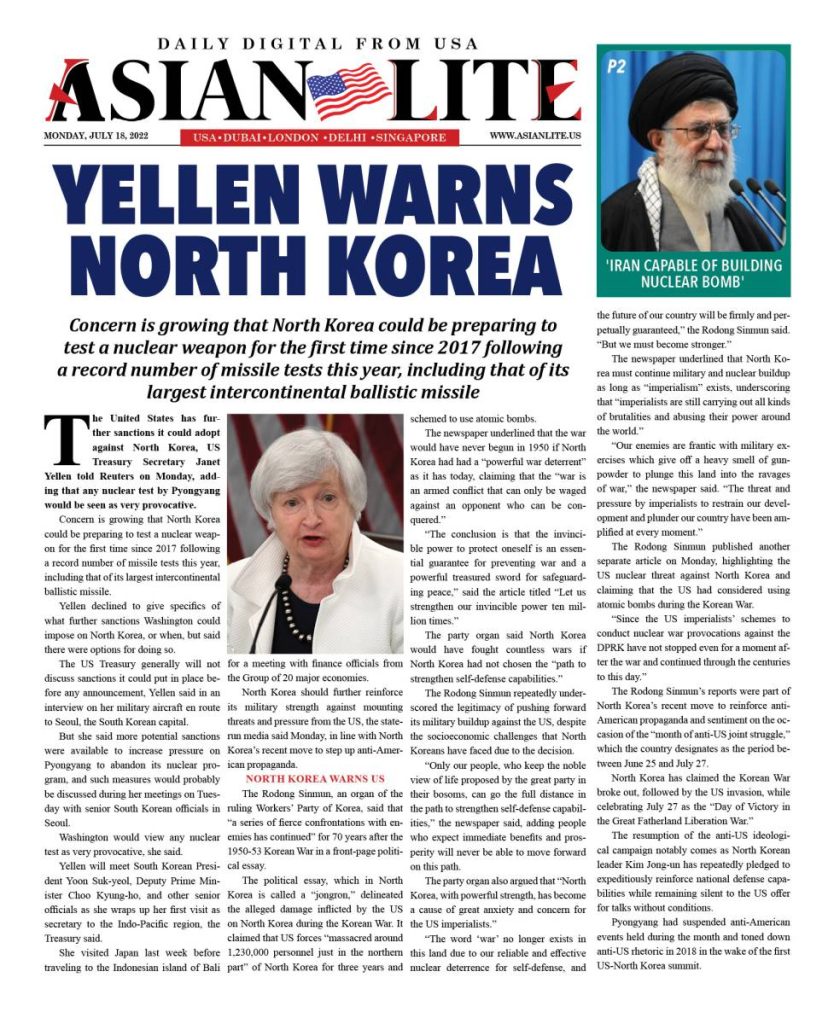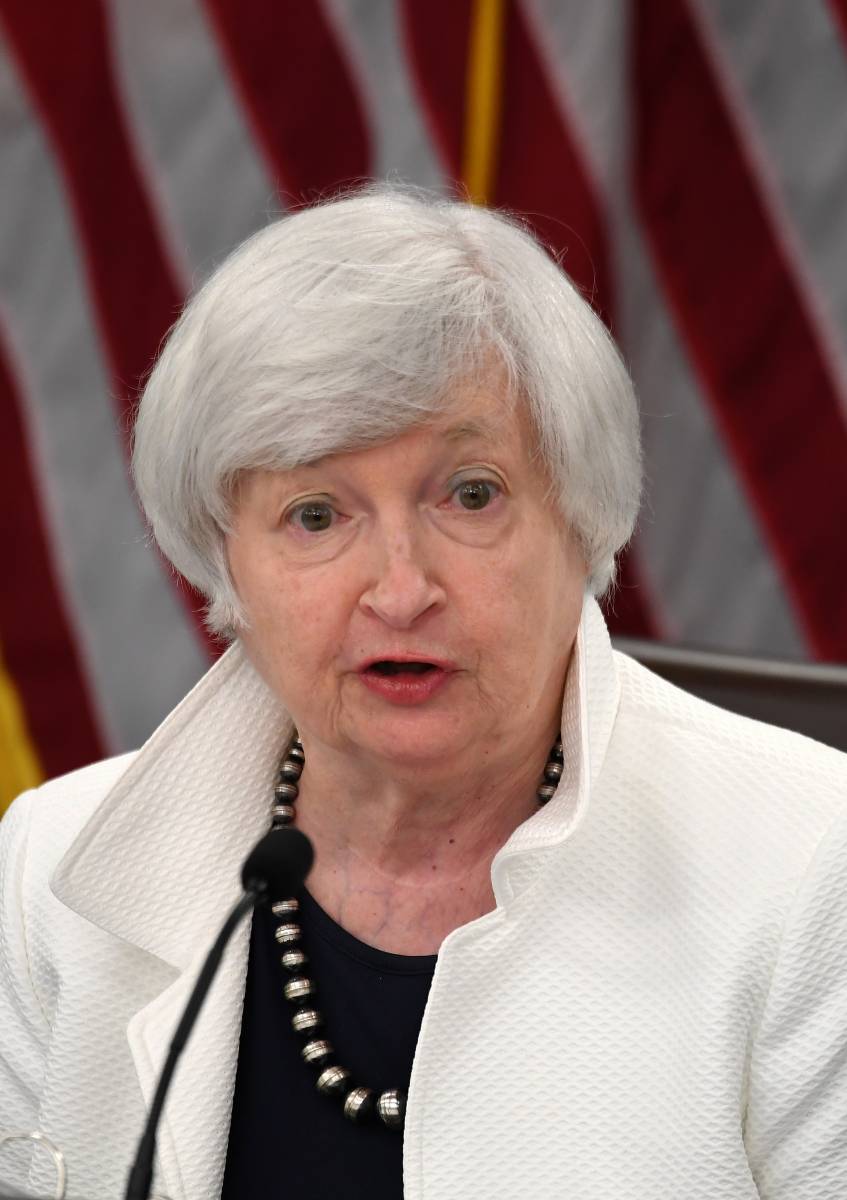Concern is growing that North Korea could be preparing to test a nuclear weapon for the first time since 2017 following a record number of missile tests this year, including that of its largest intercontinental ballistic missile…reports Asian Lite News
The United States has further sanctions it could adopt against North Korea, US Treasury Secretary Janet Yellen told Reuters on Monday, adding that any nuclear test by Pyongyang would be seen as very provocative.
Concern is growing that North Korea could be preparing to test a nuclear weapon for the first time since 2017 following a record number of missile tests this year, including that of its largest intercontinental ballistic missile.
Yellen declined to give specifics of what further sanctions Washington could impose on North Korea, or when, but said there were options for doing so.
The US Treasury generally will not discuss sanctions it could put in place before any announcement, Yellen said in an interview on her military aircraft en route to Seoul, the South Korean capital.
But she said more potential sanctions were available to increase pressure on Pyongyang to abandon its nuclear program, and such measures would probably be discussed during her meetings on Tuesday with senior South Korean officials in Seoul.
Washington would view any nuclear test as very provocative, she said.
Yellen will meet South Korean President Yoon Suk-yeol, Deputy Prime Minister Choo Kyung-ho, and other senior officials as she wraps up her first visit as secretary to the Indo-Pacific region, the Treasury said.
She visited Japan last week before traveling to the Indonesian island of Bali for a meeting with finance officials from the Group of 20 major economies.
North Korea should further reinforce its military strength against mounting threats and pressure from the US, the state-run media said Monday, in line with North Korea’s recent move to step up anti-American propaganda.

North Korea warns US
The Rodong Sinmun, an organ of the ruling Workers’ Party of Korea, said that “a series of fierce confrontations with enemies has continued” for 70 years after the 1950-53 Korean War in a front-page political essay.
The political essay, which in North Korea is called a “jongron,” delineated the alleged damage inflicted by the US on North Korea during the Korean War. It claimed that US forces “massacred around 1,230,000 personnel just in the northern part” of North Korea for three years and schemed to use atomic bombs.
The newspaper underlined that the war would have never begun in 1950 if North Korea had had a “powerful war deterrent” as it has today, claiming that the “war is an armed conflict that can only be waged against an opponent who can be conquered.”
“The conclusion is that the invincible power to protect oneself is an essential guarantee for preventing war and a powerful treasured sword for safeguarding peace,” said the article titled “Let us strengthen our invincible power ten million times.”
The party organ said North Korea would have fought countless wars if North Korea had not chosen the “path to strengthen self-defense capabilities.”
The Rodong Sinmun repeatedly underscored the legitimacy of pushing forward its military buildup against the US, despite the socioeconomic challenges that North Koreans have faced due to the decision.

“Only our people, who keep the noble view of life proposed by the great party in their bosoms, can go the full distance in the path to strengthen self-defense capabilities,” the newspaper said, adding people who expect immediate benefits and prosperity will never be able to move forward on this path.
The party organ also argued that “North Korea, with powerful strength, has become a cause of great anxiety and concern for the US imperialists.”
“The word ‘war’ no longer exists in this land due to our reliable and effective nuclear deterrence for self-defense, and the future of our country will be firmly and perpetually guaranteed,” the Rodong Sinmun said. “But we must become stronger.”
The newspaper underlined that North Korea must continue military and nuclear buildup as long as “imperialism” exists, underscoring that “imperialists are still carrying out all kinds of brutalities and abusing their power around the world.”

“Our enemies are frantic with military exercises which give off a heavy smell of gunpowder to plunge this land into the ravages of war,” the newspaper said. “The threat and pressure by imperialists to restrain our development and plunder our country have been amplified at every moment.”
The Rodong Sinmun published another separate article on Monday, highlighting the US nuclear threat against North Korea and claiming that the US had considered using atomic bombs during the Korean War.
“Since the US imperialists’ schemes to conduct nuclear war provocations against the DPRK have not stopped even for a moment after the war and continued through the centuries to this day.”
The Rodong Sinmun’s reports were part of North Korea’s recent move to reinforce anti-American propaganda and sentiment on the occasion of the “month of anti-US joint struggle,” which the country designates as the period between June 25 and July 27.
North Korea has claimed the Korean War broke out, followed by the US invasion, while celebrating July 27 as the “Day of Victory in the Great Fatherland Liberation War.”
The resumption of the anti-US ideological campaign notably comes as North Korean leader Kim Jong-un has repeatedly pledged to expeditiously reinforce national defense capabilities while remaining silent to the US offer for talks without conditions.
Pyongyang had suspended anti-American events held during the month and toned down anti-US rhetoric in 2018 in the wake of the first US-North Korea summit.
But the Kim Jong-un regime in June resumed politically charged events, including nationwide anti-American rallies and art exhibitions for the first time in five years.
Since then, North Korea has stepped up its anti-US indoctrination, publishing articles in internal- and external-oriented media outlets fostering anti-American sentiment and highlighting its claim of victory in the Korean War.
For instance, lecturers at the Sinchon Museum — which displays pictures and sculptures showing alleged US atrocities during the Korean War and is located in South Hwanghae Province — have provided anti-American ideological education for officials and workers at local cooperative farms, the Korean Central News Agency reported on July 10.
The KCNA said the lectures have made North Korean people harbor “thoughts of revenge against the US imperialist aggressors and class enemies.”

